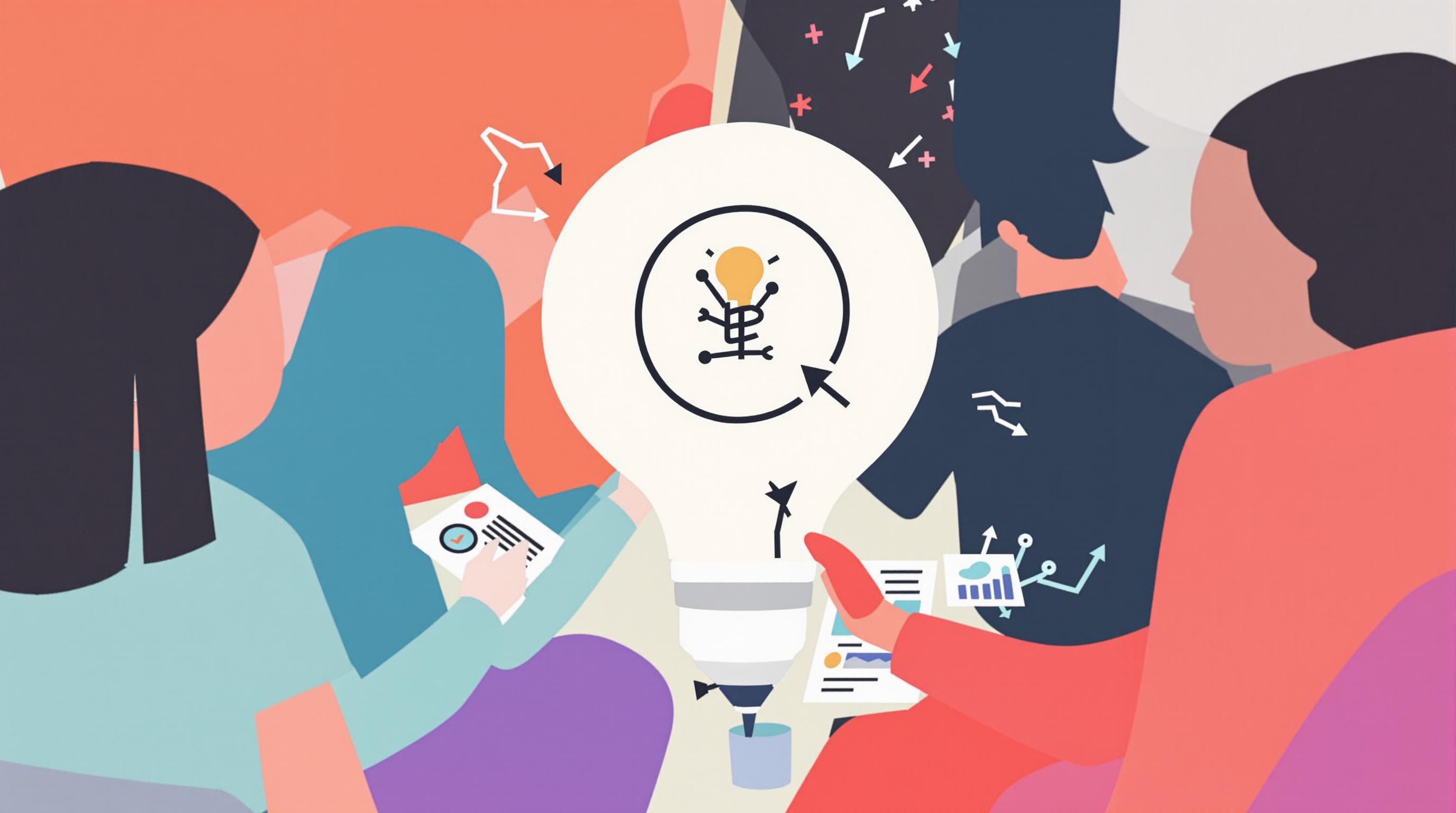Featured Articles
- 10 Unexpected Lessons from Student Life: How Campus Culture Shapes Future Leaders and Innovators
- 12 Surprising Skills Gained from Student Life: How Extracurriculars Shape Adaptable Graduates for a Changing World
- 7 Mindful Habits for Student Life: Cultivating Balance and Wellness in the Busy College Journey
- "Beyond Grades: The Surprising Connection Between Student Mental Health and Pet Therapy Programs on Campus"
- "From Study Spaces to Street Art: How College Campuses Are Becoming Creative Havens for Student Expression"
10 Unexpected Lessons from Student Life: How Campus Culture Shapes Future Leaders and Innovators
10 Unexpected Lessons from Student Life: How Campus Culture Shapes Future Leaders and Innovators
10 Unexpected Lessons from Student Life: How Campus Culture Shapes Future Leaders and Innovators
1. Embracing Diversity
One of the most significant lessons learned in student life is the importance of embracing diversity. College campuses often serve as melting pots of cultural, racial, and social backgrounds, presenting students with unique opportunities to interact with different perspectives. This exposure fosters open-mindedness and empathy—traits essential for leaders in an increasingly globalized world.
Such interactions challenge preconceived notions, allowing students to engage in critical dialogue about identity, experience, and history. A study by the American Council on Education emphasizes that diverse learning environments enhance problem-solving abilities and encourage innovative thought (ACE, 2019).
Moreover, the ability to embrace diversity directly influences teamwork in professional settings, where understanding and valuing varied perspectives can lead to enhanced collaboration and creativity.
2. Time Management Skills
In the chaotic realm of academia, students quickly learn the art of juggling multiple responsibilities, from classes to extracurricular activities. This demanding environment necessitates honing time management skills that will serve them well into their careers. Students become adept at prioritizing tasks, meeting deadlines, and balancing various commitments.
According to the National Center for Education Statistics, students who master time management during college tend to report greater job satisfaction later in their careers (NCES, 2020). They become more reliable and efficient at work, knowing how to navigate the complexities of modern projects while adhering to tight schedules.
This skill not only enhances personal productivity but also equips future leaders with the ability to manage teams effectively, ensuring that organizational goals are met without compromising quality.
3. Critical Thinking and Analysis
Student life often requires rigorous academic inquiry, pushing individuals to think critically and analyze diverse content. Engaging in debates, research projects, and coursework honed these vital skills. As students sift through information, they learn to discern credible sources from misinformation, which is more important than ever in today's digital age.
This rigorous analytical training fosters a mindset accustomed to questioning assumptions and exploring alternative solutions. The Association of American Colleges and Universities reports that critical thinking is one of the top competencies employers are seeking today (AAC&U, 2021).
Future leaders who can assess situations from multiple angles are better equipped to tackle complex challenges and devise innovative strategies in their professional lives.
4. Networking and Building Relationships
Academia is not solely about classrooms and textbooks; it's a breeding ground for networking and relationship building. Students often find themselves in various social settings, connecting with peers, professors, and industry professionals. These connections can lead to job opportunities, collaborations, and mentorships well beyond their college years.
A 2021 LinkedIn survey revealed that over 70% of professionals consider networking crucial for career development (LinkedIn, 2021). The relationships fostered on campus often yield lasting professional alliances that can open doors and provide support in times of need.
Moreover, the ability to foster relationships is a key leadership skill. Future innovators who can effectively network are more likely to inspire others and mobilize resources toward their endeavors.
5. Resilience in the Face of Failure
Throughout their educational journey, students experience setbacks, whether through disappointing grades, failed projects, or personal challenges. These experiences teach resilience—the ability to bounce back and learn from failures. Campus culture encourages a growth mindset, emphasizing that failures can lead to valuable lessons and significant personal growth.
Research from the University of Pennsylvania indicates that resilience is linked to higher achievement and overall well-being (UPenn, 2020). By learning to cope with adversity, students develop the grit needed to navigate their future careers and personal lives.
This resilience ultimately shapes future leaders who are more capable of handling crises and are less likely to be deterred by obstacles.
6. Creative Problem Solving
Campus life encourages students to think unconventionally when addressing problems. Whether participating in group projects, extracurricular activities, or community service, students frequently encounter unique challenges that require innovative solutions. This environment nurtures creative thinking and adaptability, qualities that are essential for innovators.
A report from the World Economic Forum highlights creativity as one of the top skills for the workforce of the future (WEF, 2020). By engaging in varied experiences, students learn to approach problems from different angles, which equips them with the tools to innovate in their chosen fields.
This capacity for creative problem solving is vital in leadership, ensuring future leaders can inspire groundbreaking ideas and steer organization toward success.
7. Community Engagement and Social Responsibility
Many students engage in community service and social activism during their time in college, which fosters a sense of social responsibility and civic engagement. Understanding the needs of the community broadens students' perspectives, making them more empathetic and aware of their societal impact.
According to the Corporation for National and Community Service, volunteering increases civic engagement, personal responsibility, and leadership skills (CNCS, 2021). This sense of purpose shapes students into conscientious leaders focused on positive change.
In the modern professional landscape, socially responsible leaders are in high demand. Students who embrace community engagement are often more effective in advocating for ethical practices within their organizations.
8. Balancing Independence and Collaboration
Living in a campus environment often requires students to balance independence with collaboration. As they navigate dorm life and group projects, students learn to assert their autonomy while also recognizing the value of teamwork. This duality is crucial for future leaders who must work effectively in team settings while also maintaining their individual vision.
Research from Harvard Business Review emphasizes that successful leaders exhibit both independence and collaboration, allowing them to inspire teams and foster a positive work environment (HBR, 2020). This nuanced understanding enables students to contribute their skills while uplifting their peers, creating inclusive and productive spaces.
The ability to strike this balance will allow them to adapt to various team dynamics in their future careers, ensuring they can navigate both leadership and collaborative roles with ease.
9. Financial Literacy and Responsibility
For many students, college is their first taste of managing finances, whether through budgeting for supplies, managing student loans, or paying bills. This exposure to financial realities fosters literacy and responsibility that will serve them throughout their lives. Learning to handle finances is a crucial aspect of adult life that can determine future success.
A report from the Financial Industry Regulatory Authority shows that higher financial literacy is associated with better financial management and reduced stress (FINRA, 2021). Students who develop financial acumen during their college years are better equipped to avoid pitfalls and make sound economic decisions later on.
This knowledge is indispensable for future innovators and leaders, ensuring they can effectively manage their resources and make sound investments in their ideas and projects.
10. Lifelong Learning and Intellectual Curiosity
College is often the catalyst for lifelong learning. Surrounded by diverse ideas and knowledge, students cultivate intellectual curiosity that extends beyond the classroom. This thirst for knowledge shapes future leaders who recognize the importance of staying informed and adapting to new information and trends.
The National Endowment for the Humanities highlights that fostering a love for learning can lead to personal and professional growth, as individuals become committed to continuing education throughout their lives (NEH, 2020). This commitment to learning ensures that future leaders remain relevant and adaptable in an ever-evolving world.
A culture of intellectual curiosity encourages innovation and critical discourse, preparing individuals to tackle challenges with creativity and a long-term vision for success.




